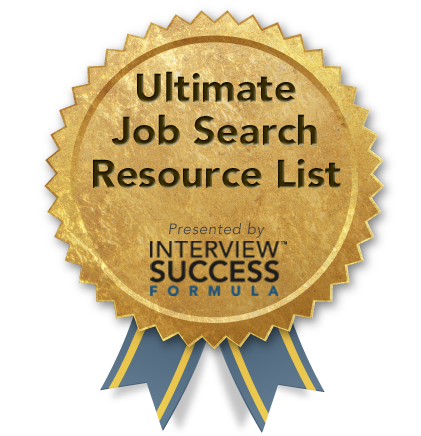Reasons Why Including a Picture in Your Resume Won’t Work for You
- Written by Alan Carniol
 A picture is worth a thousand words; this well-known saying is true in every sense. There are many things that are better explained through pictures than words, but if you’re currently looking for a job, you are better off using words than pictures in explaining why they should hire you. Here are three reasons why you should leave the picture off of your resume.
A picture is worth a thousand words; this well-known saying is true in every sense. There are many things that are better explained through pictures than words, but if you’re currently looking for a job, you are better off using words than pictures in explaining why they should hire you. Here are three reasons why you should leave the picture off of your resume.
6 Common Reasons Why Employers Turn You Down
- Written by Alan Carniol
 Gone are the days when getting a job was simple. Nowadays, a job seeker has to go through a number of hurdles just to get an interview. Even then, there are still a lot of obstacles that you have to overcome. With the stress that comes with an interview, you are bound to make a mistake if you don’t plan properly.
Gone are the days when getting a job was simple. Nowadays, a job seeker has to go through a number of hurdles just to get an interview. Even then, there are still a lot of obstacles that you have to overcome. With the stress that comes with an interview, you are bound to make a mistake if you don’t plan properly.
4 Ways You Can Save Money during a Job Search
- Written by Alan Carniol
 If it’s been a while since you last looked for work, you might be surprised by the expenses you can incur when doing a job search. Don’t let the cost of looking for a job discourage you, however. There are some things you can do to save money during your job search.
If it’s been a while since you last looked for work, you might be surprised by the expenses you can incur when doing a job search. Don’t let the cost of looking for a job discourage you, however. There are some things you can do to save money during your job search.
4 Key Tips to Dressing Properly for an Interview
- Written by Alan Carniol
 What we wear has a major influence on how people perceive us. It shows our personality and who we are even before we say a word to a person. It instantly tells people our story and creates a lasting first impression.
What we wear has a major influence on how people perceive us. It shows our personality and who we are even before we say a word to a person. It instantly tells people our story and creates a lasting first impression.
Spotting Red Flags in a Company During Your Interview
- Written by Alan Carniol
 When you’re looking for a job and see a job posting that you are interested in, it’s only natural to want to know more about the company. After all, you’ll be spending at least 40 hours a week there, so you just want to know that you’ll be in a place that you’ll like.
When you’re looking for a job and see a job posting that you are interested in, it’s only natural to want to know more about the company. After all, you’ll be spending at least 40 hours a week there, so you just want to know that you’ll be in a place that you’ll like.
6 Ways You Can Overcome Being Overqualified
- Written by Alan Carniol
 Job seekers face many different kinds of problems. There are those who lack the right set of skills and experiences, and there are those who worry being overqualified. Most people would assume that being overqualified is not so bad; after all, you already have the skills to do the job. In reality, though, it’s a big problem.
Job seekers face many different kinds of problems. There are those who lack the right set of skills and experiences, and there are those who worry being overqualified. Most people would assume that being overqualified is not so bad; after all, you already have the skills to do the job. In reality, though, it’s a big problem.
6 Mistakes Fresh Graduates Make at Their First Job
- Written by Alan Carniol
 Graduating from college and getting your first job is a big milestone. However, this milestone comes with new challenges. Being in the workforce is different from being in school, so it’s no wonder that most new graduates often make mistakes. Here are some of them:
Graduating from college and getting your first job is a big milestone. However, this milestone comes with new challenges. Being in the workforce is different from being in school, so it’s no wonder that most new graduates often make mistakes. Here are some of them:
7 Tips to Writing Your First Resume
- Written by Alan Carniol
 Everyone needs a good resume in order to get a job, but not everyone can write a good resume on the first try. Most people think that writing a resume is easy but find out otherwise when employers don’t respond. Compiling bits of information and calling it a resume doesn’t make it a resume. You need to craft it so that employers see the value you can bring to their company.
Everyone needs a good resume in order to get a job, but not everyone can write a good resume on the first try. Most people think that writing a resume is easy but find out otherwise when employers don’t respond. Compiling bits of information and calling it a resume doesn’t make it a resume. You need to craft it so that employers see the value you can bring to their company.
6 Tips for Your First Informational Interview
- Written by Alan Carniol
 There are times when sending hundreds of resumes to companies is just not enough, so taking a new approach might be warranted. For some, the approach they take is doing informational interviews. Why? It’s a great way to build your network and open up new opportunities while gaining deeper insight into your particular field.
There are times when sending hundreds of resumes to companies is just not enough, so taking a new approach might be warranted. For some, the approach they take is doing informational interviews. Why? It’s a great way to build your network and open up new opportunities while gaining deeper insight into your particular field.
Succeeding in the Job Search Today [INFOGRAPHIC]
- Written by Alan Carniol
The job search today is like a roller coaster -- intense, fast, sometimes even scary. However, if you’re prepared and have enough information in your arsenal, you’ll do a much better job at succeeding in the job search, now and in the future.
More...
Job Search Resources: The Ultimate List
- Written by admin

We all know the job search can be a difficult process. However, with tons of resources out there, preparing, applying, interviewing, and then landing a job just got a little easier.
After scouring the Web for the best job search resources -- and some up and coming niche players -- we came up with a definitive list that can help any job seeker to land their dream opportunity. Check it out below:
Top 15 Job Search Resources - Big Players
Job Search Research
1. About.com Career Planning has lots of content, advice, and input on career career exploration, the job search, and of course, how to plan your way to success. There are also sections specific for age groups, including kids and teens and Gen Y .
Congratulate About.com on Twitter
2. Monster Career Advice covers resources for resumes, cover letters, interviewing, salaries, and more. Monster also has many sub-categories of information, such as following up and work-life balance.
Congratulate Monster on Twitter
Prep Tools
3. CareerBuilder assists job seekers with pre-job search prep, including career tests, skills training, as well as helpful job seeker advice blog.
Congratulate CareerBuilder on Twitter
4. Myers-Briggs (MBTI) is one of the top-rated assessments aimed at giving you insight on your personality and your career.
Congratulate Myers-Briggs on Twitter
5. Keirsey Temperament Sorter is another assessment tool that helps you discover what type of temperament you have, while giving you insight on whether you’re an Artisan, Guardian, Rational or Idealist.
Congratulate Keirsey Temperament Sorter on Twitter
6. Personal Branding Blog focuses on prepping your online brand, from your personal to your student. The site also has multiple posts a day and has a special blog for students.
Congratulate Personal Branding Blog on Twitter
The Application Process
7. AOL Jobs has resume and cover letter advice, including real examples, tips, and a special section for new grads.
Congratulate AOL Jobs on Twitter
Presenting Yourself
8. Glassdoor Blog is a resource that illustrates some interview preparation best practices. Among others, the most popular articles on the blog include the “Top 25 Oddball Interview Questions For 2013” and “Most Common Interview Questions.”
Congratulate Glassdoor on Twitter
Interviews
9. U.S. News: On Careers provides job seekers with some great video interview advice, including tips to ace the interview, what not to do, and how to master a one-way interview.
Congratulate U.S. News on Twitter
10. Forbes Careers is a resource that provides great in-person career advice. There are a variety of contributors on a daily basis, and articles range from acing your job interview to the most outrageous job interview advice.
Congratulate Forbes Careers on Twitter
11. SnagAJob gives job seekers some insight on panel and job interview situations, such as how to stand out and how to be assertive in the right way.
Congratulate SnagAJob on Twitter
12. Business Insider Careers has some great articles on phone interviews. Advice includes exercising your voice, listening to talk radio in order to perfect a professional conversation, and avoiding mirrors during the interview.
Congratulate Business Insider on Twitter
Post-Job Interview Advice
13. Examiner provides some great thank you note etiquette advice, including some best practices on how to write thank you notes for every interview situation.
Congratulate Examiner on Twitter
14. Harvard Business Review fills job seekers in on salary negotiation. Articles range from negotiation to how our conception of pay has changed.
Congratulate Harvard Business Review on Twitter
15. Salary.com is more than just a salary website. It helps job seekers to understand benefits, how to negotiate effectively, and illustrates some common benefit myths
Congratulate Salary.com on Twitter
Top 15 Niche Job Search Resources
1. AfterCollege.com assists job seekers to find their first job or internship with after college, targeting up-and-coming and recent grads. Targets: Recent grads
Congratulate AfterCollege.com on Twitter
2. Enternships is a resource that connects job seekers with internships and entry-level jobs in entrepreneurial businesses. Targets: Students and recent graduates
Congratulate Enternships on Twitter
3. JobCompass is an iPhone app that searches for open positions near your home, within a five-mile radius. JobCompass also searches more than two million listings to help find the job you're looking for. Perk: It's free in the iTunes store.
Congratulate JobCompass on Twitter
4. JobMo is an app that allows users to search for listings around the globe using Google Maps. Perk: It’s free on iTunes and Google Play.
5. JobsOver50 is an employment service for baby boomers and retirees, focusing on the needs of those who are 50 and older. Perk: Users are verified by their school or alma mater, giving them credibility.
Congratulate JobsOver50 on Twitter
6. BeKnown is a professional network on Facebook where users can make and use their connections to help find jobs. Perk: Backed by Monster, users can share their Monster profile with employers to showcase their achievements and keep track of network connections.
Congratulate BeKnown on Twitter
7. Career Girl Network provides information and resources to women, giving them opportunity to build a network invested in their success. Targets: All women
Congratulate Career Girl Network on Twitter
8. Doostang is an exclusive career community for young professionals. Targets: Elite young professionals with outstanding backgrounds looking to advance their careers
Congratulate Doostang on Twitter
9. FlexJobs is a unique resource for those seeking flexible positions. Targets: Job seekers who want part-time, flex time, and freelance jobs or positions where they can telecommute
Congratulate FlexJobs on Twitter
10. StartUpHire is a tool that provides listings of startup career opportunities. It includes thousands of jobs at venture capital-backed companies nationwide. Targets: Talent who want to work with with innovative, high-growth companies
Congratulate StartUpHire on Twitter
11. VetJobs is a great resource for transitioning military, National Guard, Reserve Component Members and veterans who want to find jobs after their service. Targets: All members of "The United States Military Family"
Congratulate VetJobs on Twitter
12. Catchafire matches professionals who want to give their skills to nonprofits and social enterprises that need their help. Perk: Matches professionals and organizations based on a variety of characteristics such as skills, cause interests, and time availability.
Congratulate Catchafire on Twitter
13. SpringTern helps students get the experience they need to land the right jobs, such as opportunities to complete short-term work projects for companies of all shapes and sizes. Targets: College students and recent graduates
Congratulate SpringTern on Twitter
14. Careers in Government matches job seekers with careers in the government and the public sector. Perk: Includes resources such as a basic salary calculator.
Congratulate Careers in Government on Twitter
15. FreshTransition is an app for career changers that allows users to keep track of the jobs they are targeting. Perk: Has a community of career experts who help with expertise on career planning, transition, personal branding, resumes, cover letters, networking, social media and more.
Congratulate FreshTransition on Twitter
Congrats to everyone who made the career and job search resource list!
What do you think? What are some job search resources that we missed?
P.S. See your name on the list? Claim your official badge. Copy the below embed code for your site:
<a href="http://interviewsuccessformula.com/"><img class="alignnone" alt="" src="http://interviewsuccessformula.com/../images/Ultimate_Job_Search_Resource.png" width="200" height="208" /></a>
5 Tips to Being Better at Small Talk in Your Interview
- Written by Alan Carniol
 Having a great resume will help you get noticed by an employer, but this won’t be enough to get you hired. Whether you like it or not, most of the time the job doesn’t really go to the best candidate, but to the one the employer likes best. This might seem unfair, but it’s the truth; it’s about looking for the right chemistry.
Having a great resume will help you get noticed by an employer, but this won’t be enough to get you hired. Whether you like it or not, most of the time the job doesn’t really go to the best candidate, but to the one the employer likes best. This might seem unfair, but it’s the truth; it’s about looking for the right chemistry.
5 Questions That Can Help You Learn More about a Company
- Written by Alan Carniol
 When you’re looking for a new job, chances are that you’re seeking an upgrade. It doesn’t make sense for you to go work at a company that is no better than the last one. After all, when you spend at least eight hours of your day working, the last thing you need is an added source of stress.
When you’re looking for a new job, chances are that you’re seeking an upgrade. It doesn’t make sense for you to go work at a company that is no better than the last one. After all, when you spend at least eight hours of your day working, the last thing you need is an added source of stress.
How to Address Your Layoff
- Written by Alan Carniol
 A layoff is one of the most common problems of job seekers in recent years. A lot of job seekers today have been hit by the mass layoffs during the economic downturn, and most companies are still just starting to get back on their feet.
A layoff is one of the most common problems of job seekers in recent years. A lot of job seekers today have been hit by the mass layoffs during the economic downturn, and most companies are still just starting to get back on their feet.

